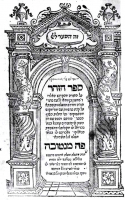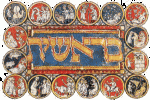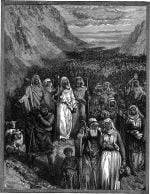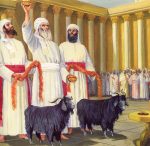
My Name Is G‑d, and I Am Pleased to Make Your Acquaintance
In the beginning, G‑d created the heaven and the earth…[1] (Genesis 1:1) Classical biblical commentators have given the first words of the Torah many

In the beginning, G‑d created the heaven and the earth…[1] (Genesis 1:1) Classical biblical commentators have given the first words of the Torah many

On the Eve of Shabbat, we received a government mailing containing documents that we were required to fill out and send back to the Census

In the six hundredth year of Noah’s life, in the second month, on the seventeenth day of the month… all the fountains of the great

In the last post, Tishrei—Past, Present, and Future, we discussed how all Tishrei holidays – Rosh HaShanah, Yom Kippur, Sukkot, and Simchat Torah – are

These are the journeys of the children of Israel… (Numbers 33:1) When G-d brought the Jews out from Egypt, He brought them out with the mystery of

Some people may be fooled by randomness but, when we realize that randomness opens the door to the Divine, we are saved by randomness. It